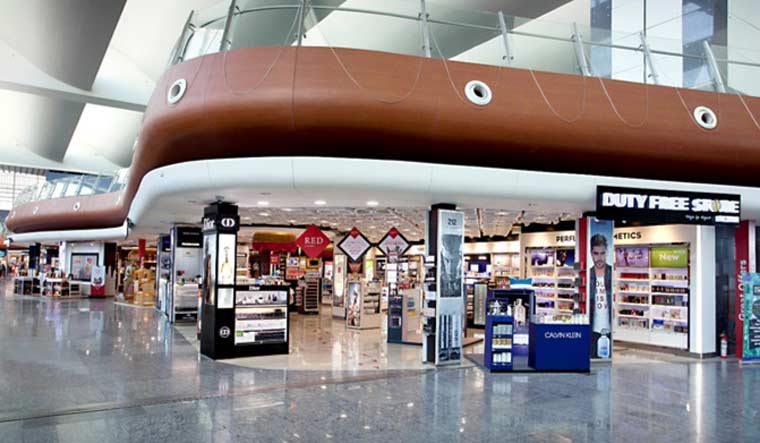The news that the commerce ministry has recommended the Union government limit the sale of alcohol and cigarettes at duty-free shops at airports has triggered debate on a very old issue: Sin products.
Currently, inbound international passengers are allowed to buy two litres of alcohol and a carton of cigarette from these shops.
At duty-free shops, passengers can purchase goods worth up to Rs 50,000 without paying import duties.
The recommendation, reported on January 19, would cuts the number of liquor bottles that can be bought at duty-free shops to one from two. The ministry has also recommended that the purchase of cigarette cartons (approximately 100 sticks) should be prohibited.
The recommendations are part of proposals sent to the finance ministry, ahead of the presentation of the budget on February 1. The recommendations were made as the government is considering means to limit import of non-essentials goods to rein in the trade deficit.
Commerce Minister Piyush Goyal told The Times of India the recommendation was intended to "restrict the entry of 'sin goods' and also align Indian rules with global standards”.
“It’s not a question of large or small (quantities). Even under GST, while alcohol is not included, tobacco is a sin good. As a nation, we are not encouraging the import of alcohol," Goyal told The Times of India. Goyal also added he was “not sure if India can afford to be so liberal, particularly when it relates to liquor and cigarettes”.
Ironically, the recommendation from the commerce ministry comes at a time when private Indian airport operators are demanding that the allowance of liquor at duty-free shops be raised from two litres to four, which would bring Indian aerodromes on par with those in Thailand, Singapore and Dubai. If Indian passengers were to spend on duty-free products overseas, airports at India would lose out on business.
The Association of Private Airport Operators (APAO) made a pre-budget submission that argued an increase in revenue from duty-free shops would boost "non-aero revenue". Non-aero revenue are sources of revenue not related to core aviation activities and includes duty-free shops and restaurants. An increase in non-aero revenue would keep aero revenue in check. Aero revenue consist of airport user fees and airline tariffs.
also read
- SpiceJet conducts seaplane trials; to offer services across India soon
- Bomb threats to flights: Arrested Delhi man says he wanted to draw attention
- Hoax bomb threats: ‘Act against spread of misinformation,’ govt tells social media sites
- Over 70 flights receive bomb threats on Thursday, mostly from same X handle
- Faced with flurry of bomb hoaxes, govt mulls law revamp
A fall in non-aero revenue would have to be compensated for by the airports raising landing and parking charges on operators. APAO secretary general Satyan Nair told Business Standard, “Any increase in landing and parking charges for airlines could result in higher airfares and make air travel more expensive.”
Business Standard explained, "Consolidated annual duty-free sales at airports in the country are estimated to be around $500 million. Delhi and Hyderabad airports earn 30 per cent and 15 per cent of non-aeronautical revenue from retail and duty-free sales."
It is not just private airports that are unhappy at the recommendation to limit liquor sales. The state-run Airports Authority of India is also in favour of raising liquor quota at duty-free shops, according to Business Standard.


